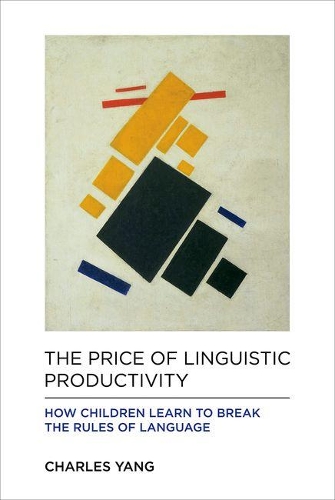
The Price of Linguistic Productivity: How Children Learn to Break the Rules of Language
(Hardback)
Publishing Details
The Price of Linguistic Productivity: How Children Learn to Break the Rules of Language
By (Author) Charles Yang
MIT Press Ltd
MIT Press
14th October 2016
United States
Classifications
Professional and Scholarly
Non Fiction
Grammar, syntax and morphology
Cognitive studies
401.93
Winner of
Physical Properties
Hardback
280
Width 152mm, Height 229mm, Spine 21mm
Description
An investigation of howchildren balance rules and exceptions when they learn languages.All languages have exceptions alongside overarching rules and regularities. How does a young child tease them apart within just a few years of language acquisition In this book, drawing an economic analogy, Charles Yang argues that just as the price of goods is determined by the balance between supply and demand, the price of linguistic productivity arises from the quantitative considerations of rules and exceptions. The learner postulates a productive rule only if it results in a more efficient organization of language, with the number of exceptions fallingbelow a critical threshold. Supported by a wide range of cases with corpus evidence, Yang's Tolerance Principle gives a unified account of many long-standing puzzles in linguistics and psychology, including why children effortlessly acquire rules of language that perplex otherwise capable adults. His focus on computational efficiency provides novel insight on how language interacts with the other components of cognition and how the ability for language might haveemergedduring the course of human evolution.
Author Bio
Charles Yang teaches Linguistics and Computer Science and directs the Program in Cognitive Science at the University of Pennsylvania. He is the author ofKnowledge and Learning in Natural LanguageandThe Infinite Gift, and is currently writing a book on language change.
